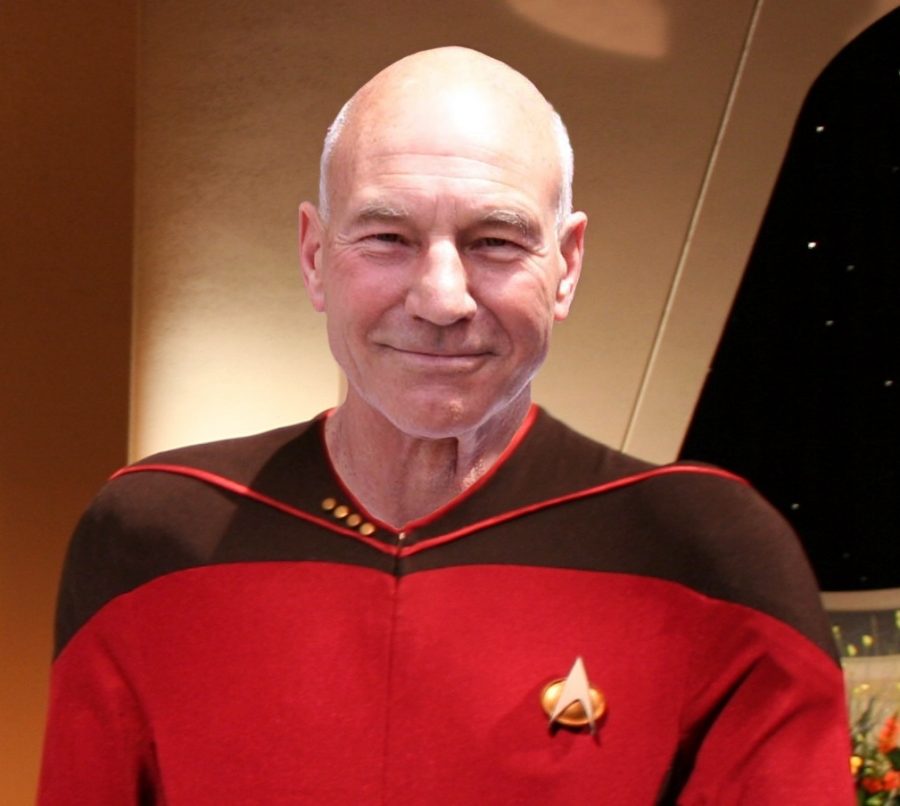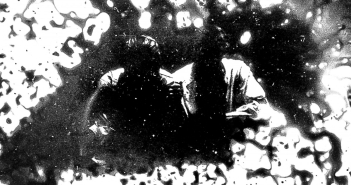I have always loved Star Trek. The utopian future was at odds with most other fictional visions of the times ahead. It’s easy to paint a world where nothing works, it’s much harder to paint one where everything does and still make it compelling. Plus, there were space ships!
One of the franchise’s great heroes was one Captain Jean Luc Picard, of the star ship Enterprise (of all names). Picard would make regular speeches to some newly discovered civilisation, who were maybe behind the times by fictional 24th century Earth standards on some issue. They may read as follows:
Alien: “What do you mean there is no money in your world?”
Picard: “We have grown out of our infancy. We no longer value the gathering of material wealth. We work to better ourselves and the rest of humanity. War and poverty have disappeared.”
That may sound a little close to Communism for comfort, but as it was portrayed on screen, it came across as something different. That was the magic trick I suppose, they never really delved into how it all works in the United Federation of Planets; we just accepted it and moved along with the story.
In the Trek-verse, World War III was the full stop to capitalism. Humanity was brought to its knees and forced to put aside its petty differences and work together to pull itself from the ashes.
Thankfully, this is not a nuclear war, but it is a global pandemic that carries with it certain similarities to a world war. Regular life and commerce have come screeching to a halt. The comfort of the circular flow model, wherein money flows from producers to workers as wages and flows back to producers as payment for products, has been somewhat derailed.
The tightrope we were walking was but a fragile, impermanent thread. More frayed than we had dared to realise.
GDP and the changing of the guard
Gross Domestic Product (GDP), described as the monetary value of all finished goods and services made within a country during a specific period, has been the common tongue among news reporters and politicians for decades when viewing the course of global economics. How strong is a country? The GDP will let you know. Donald Trump has built his presidency around it. Something he can point to and say, “Look, I’m doing great.”
However, there have been voices of dissent growing for the past few years, pointing to new models of viewing how we are doing as individuals, countries and a global community.
Diane Coyle, of Cambridge University, points out that GDP is an outdated measure for a production economy as now we have an economy that’s 80% services. The metric of GDP ignores this and things like, the now unignorable, climate impact also.
The UN’s Human Development Index (HDI) and Bhutan’s Gross National Happiness (GNH) are not without their critics but at the very least show further indication of the incomplete nature of GDP.
Now, this pandemic has brought America’s economy to a stand-still, and a more humanist approach to leadership is required. Trump can no longer hide behind the straw-man of GDP to indicate how the people are doing (nor any other world leader), and he’s drowning. You can see it in his eyes and in that mega-cringe self-sizzle reel he played at a recent briefing, claiming how ahead of the curve he has been.
The Scarcity Myth
Capitalism operates on a system of “artificial scarcity.” This refers to a scarcity of items, despite the technology and means for production and sharing existing. Meaning there should be a greater or, theoretically, even limitless quantity of production, i.e. we may not have the luxury of Star Trek’s “replicator” devices, that can conjure most items out of thin air but there’s enough to go around, lads.
Take this current crisis wherein an emergency social welfare payment of €350 was, rightly, put in place by our government. The jobseeker allowance pre-crisis was €203. How long have nurses been asking for a pay increase? Where was this money sitting before, or if the money wasn’t “there”, where was the willingness to borrow, which is effectively what our government is doing? All over the world, governments have thrown the fiscal probity rulebook out the window.
Of course, there are deeper financial implications for every cent of government spending and it would take a book to go there, but people see now, it’s there, or at least available. It has always been there, floating through the computers and calculators of world banks and governments.
As French economist and Trekkie, Manu Saadi espouses in his work Trekonomics, warp-drive may not be possible but a post-scarcity society is.
Automation: Resistance is futile
As technology advances, automation has become a growing concern long before this global lockdown. If robots can do the job, what will all of those people do?
Well, here we are faced with an, albeit twisted, preview. Humanity has been given a time-out. So many brains and bodies given a chance to look at where their lives have been heading and perhaps reassess what is important to them and what they want to spend their fleeting time on this Earth doing.
Diane Coyle calls this the “shadow price of time.” How do we use our time and how much benefit do we get from the activities we undertake? Another shortcoming of the GDP metric, Coyle claims.
We live, broadly speaking, in a privileged era. By that I mean, compared to 100, 400, 3000, years ago (a blip in the grand scale of time). We don’t have to hunt for our meals, or work in the coal mines or build pharaoh’s pyramids.
Instead of pharaoh’s chains, will we now break the chains of doomed capitalism and put greater emphasis on our own shadow price of time? This doesn’t mean sitting around, not contributing, of course.
As Capt. Jean Luc Picard may put it, it’s time to start working to better ourselves and humanity. There is enough. We can see it now. I don’t think capitalism at its core was evil, not in its intent. It’s just how things went. The loudest voice in the room at the time. Now the chinks in its armour have widened and the starlight is shining through.
It’s life Jim, but not as we know it…
If economics, as we know it, can stop in its tracks, will people accept business as usual after this virus is a memory? Unfortunately, unlike Gene Roddenberry, the visionary creator of Star Trek way back in the 1960’s, I can see the future no more than Trump could see covid-19 a few months ago.
Perhaps this is just pie in the sky (very far up in the sky) stuff and we’ll likely all get back to Tommy Hilfiger boxer shorts and daily checks on booking.com for the best deals in Lanzarote once this ends, but it’s a nice thought for now. The thought that instead of backwards, we are boldly going where no one has gone before.




